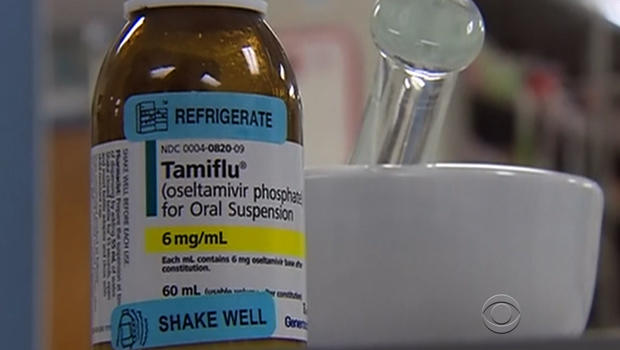Government stockpiles flu medicine, but does it work?
A new study on Thursday suggests the U.S. government's billion dollar stockpile of flu medicine may have little effect in a pandemic.
The government amassed enough flu medicine for 65 million people and the risk can be high. The outbreak of 1918, for example, killed more than 600,000 Americans.
The report challenges the assumption that antiviral medications like Tamiflu and Relenza offer significant help against the flu.
The major findings:
- the drug decreased symptoms slightly, by 17 hours, from 7 days to 6.3 days
- there was no compelling evidence it prevented pneumonia or reduced the risk of death.
"There's no good evidence that you will reduce the risk of hospitalization or other complications and no evidence that it reduces the spread of influenza between people," said Peter Doshi, one of the authors.
Critics like Doshi say the review raises questions because Tamiflu is a key component of the government's plan to handle a future flu pandemic, to help decrease hospitalizations and death.
The U.S. Department of Health and Human Services has spent $1.3 billion stockpiling this class of drugs.
"We need to have evidence-informed policy decisions, and so that starts with independent reviews of the evidence before you go out and you spend billions of dollar stockpiling these drugs," Doshi said.
Barry Clinch is a scientist with Roche said that there is a "significant body of expertise that have looked at our data, and share the same position that we do, that Tamiflu is a very useful medicine for treating what is a serious respiratory infection."
After this report was issued on Thursday, the Centers for Disease Control said it continues to recommend anti-viral medications such as Tamiflu for treating the flu.



